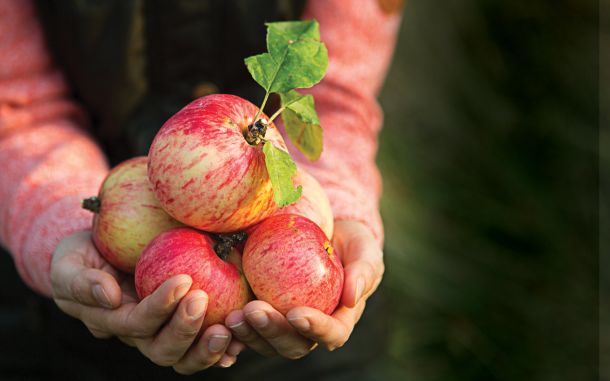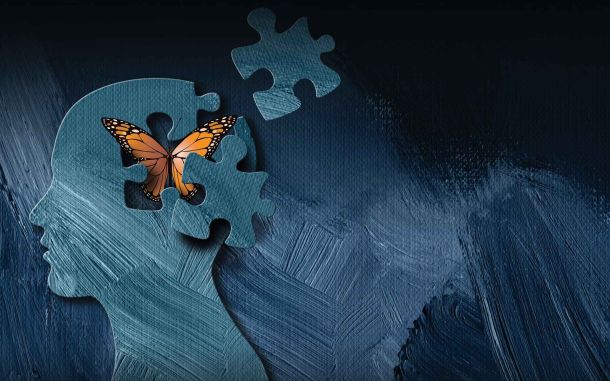Steadfastness

In This Article
-
Sooner or later, you will witness the severe repercussions faced by today's tyrants. You will observe how those who disturb the equilibrium of God's justice ultimately encounter their own calamities. I assert this with confidence in the name and justice of God, Al-Haqq.
-
We cannot ignore human nature. Faced with the suffering and hardship, we, as humans, experience sorrow; our hearts ache. Each act of tyranny inflicts a piercing blow, stirring deep emotions within us.
Emotions like resentment, enmity, hatred, and jealousy, which, if left unchecked, can render us morally blind, deaf, and heartless. These emotions have the power to transform humans into aggressive beasts and, in extreme cases, strip us of our humanity. Surveying our surroundings, it becomes evident that numerous individuals have succumbed to the influence of these negative emotions, consequently committing significant crimes. A believer is tasked with the responsibility of maintaining their willpower, regulating these emotions, and persisting in a righteous life. They ought to lean on the grace and power of God to navigate challenging situations where others might slip, stumble, and fall. In the face of mistreatment, they should steadfastly uphold their character and unwavering stance, refusing to compromise.
As expressed in the Qur'an, humanity, honored as the finest of creation, is created in the most exquisite manner, both physically and spiritually (Tin, 95:4). Described as a dignified and noble being (Isra, 17:70), humans bear the responsibility of showcasing conduct that aligns with this perfection of creation. Their task is to lead a life in harmony with righteousness and steadfastness, bestowed upon them by God throughout their lifetime, and to steadfastly adhere to the righteous path without deviation. It is incumbent upon them not to allow the inherent negative emotions in their nature to lead them astray.
Particularly in the contemporary world, where emotionally challenging situations are prevalent, preserving equilibrium in both emotions and thoughts becomes increasingly vital. Those who let their grudges, jealousy, and arrogance control them are like people attempting to destroy something valuable achieved through hard work and effort, much like setting fire to a hard-earned harvest. The injustices, dominations, and oppressions that occur can disrupt even the balance of the most steadfast individuals. In times of trials, when calamities and tribulations follow one another, it is crucial to strengthen one’s connection with the Almighty and maintain an unwavering stance by diligently nurturing one’s willpower. This effort to stand tall and remain free from all kinds of deviations and aberrations represents a remarkable endeavor and determination.
God is our witness that our only goal is to raise the noble name of Muhammad (peace be upon him) everywhere, to guide the younger generations by providing them with educational opportunities, and to strive for global peace and security. We have always advocated love, peace, brotherhood and sisterhood, tolerance, humanity, and developed projects and institutions to preserve these humane values. Individuals who have committed themselves to service, just like the noble Companions of our Prophet, disseminate the truths instilled in their hearts by God to eager souls worldwide through intentional and voluntary migrations. They did not look back, did not think of themselves, harbored no expectations, and refrained from becoming attached to the worldly life. In the places they went, they worked like laborers, constructing institutions that would serve their goals, investing their own efforts into these projects. They did what was necessary for the peace and well-being of humanity, and they said what needed to be said. With the permission and grace of God, they achieved remarkable successes in a short period.
But, you see, tyrants and silent devils – those who remain silent in the face of tyrants’ oppression and injustices – have never been absent from the face of the earth. Pharaohs, Nimrods, Yazids, Hajjajs, and hypocritical oppressors have existed in every era, and they will continue to exist in the future. These narcissistic individuals, enslaved by their egos, have, through their oppression and cruelty, inflicted harm on those who stand up for the cause of God. They have killed some, forced some to abandon their homeland, imprisoned some, and seized the wealth and property of others who earned their livelihood through honest labor. Their cruelty and oppression have extended to women, children, and the elderly. The names and titles of the oppressors may change, but their atrocities have always been the same. This persistence is rooted in the shared ethical flaws resembling those of Pharaoh, as described in the Qur'an. Deluded by their reign, they thought of their personal interests, considered their worldly life to be eternal, and forgot about the Hereafter. Throughout the cycle of history, suffering has become the constant fate of the Prophets and their faithful followers.
Nonetheless, no act of oppression has ever benefited its perpetrators. Oppressors, deeply immersed in the atrocities they committed up to their throats, have shaped their own malevolent destinies and impending destruction. They experienced the consequences of the torment and suffering they imposed on innocent people. The multitude of prayers, supplications, cries, and tears of the oppressed and victimized people reached the heavens, invoking the protective care and intervention of God (ghayratullah). The Most Compassionate One, in His divine mercy, initially granted respite and opportunities for repentance to the oppressors. However, when His intervention commenced, He dealt with these ruthless oppressors who inflicted harm on the innocent in a manner that rendered them beyond redemption. Additionally, there were occasions when oppressors, due to their savage, ruthless, and treacherous schemes devised and executed through collaborators, faced condemnation in the court of human conscience, attracting curses and condemnation upon them.
Sooner or later, you will witness the severe repercussions faced by today's tyrants. You will observe how those who disturb the equilibrium of God's justice ultimately encounter their own calamities. I assert this with confidence in the name and justice of God, Al-Haqq. Our hope is that, before they meet their fates, God, in His mercy, guides them towards genuine faith and humanity. May He unveil their eyes, reveal the path of truth to them, and bestow guidance upon the Straight Path. May He grant wisdom, understanding, and reason to those who support them through their perspectives, rulings, words, and writings. May He enlighten the minds of the masses who have chosen silence in the face of such oppression, leading their hearts to a recognition of justice and truth. I earnestly desire that the oppressors abandon their injustices and open their eyes to true faith!
In essence, the oppressor will continue to act in line with their character, but, in the end, they will face the consequences of their actions. Moreover, threats, pressures, forced migrations, and massacres, much like in the past, will persist for those advocating truth and justice both today and in the future. Individuals who wholeheartedly believe in God should persist on their journey, mindful of all these challenges. While oppressors act in alignment with their nature, believers should be well aware of their responsibilities and fulfill them. They ought to endure what needs endurance and confront what requires confrontation. The crucial factor is the ability to remain steadfast in the face of repeated waves of oppression, to continue progressing without succumbing to negativity, and to take proactive measures that render the endured hardships meaningful. The noble Companions of the Prophet endured the scorching deserts, suffered beneath the rocks, and faced boycotts at the Valley of Abu Talib [1]. They were forced to leave their homes, but later, with Divine permission, they conquered hearts. They endured hardships, yet they managed to turn barren lands into lush gardens and paradises. Their sweat and tears turned into clouds of mercy descending from the sky, transforming the places they visited into orchards and gardens. If today’s dedicated individuals want to revive arid deserts, they must remember that they need to follow the same path.
If you have tested the path you are walking on with the fundamental criteria of the Qur’an, the Sunnah of the Prophet, and the way of the righteous predecessors and believe it to be correct, then from now on, your task is to continue walking straight without deviating, without getting lost, and without falling into error. Deviating from this path means deviating from the path of the Qur’an, the Sunnah, and our righteous predecessors. Those who deviate from their path are beyond recovery. Have you ever heard the Companions of the Prophet who endured years of boycott, persecution, and torture ever saying, “Enough is enough” or wavering in their commitment? Since they didn’t, it’s only fitting that we refrain from uttering the words, “Enough is enough.” Those who don’t say “enough” today may find themselves expressing “thanks” tomorrow by the will of the Almighty. [translator’s note: This distinction emphasizes that “enough” implies reaching a breaking point or expressing a complaint, while “thanks” conveys a sense of accomplishment, gratitude for enduring, succeeding, and blessings received.]
We cannot ignore human nature. Faced with the suffering and hardship, we, as humans, experience sorrow; our hearts ache. Each act of tyranny inflicts a piercing blow, stirring deep emotions within us. To remain unmoved by the countless atrocities committed by tyrants would be a display of indifference and insensitivity. However, as emphasized earlier, we stay unwavering on our path, preventing our emotions from overpowering us, and avoiding the transformation of our sorrow into complaints in the face of these adversities. Through our words and attitudes, we strive not to shatter the spiritual strength of those around us, steering clear of leading them into despair. Just as we have faith that the pressures encountered thus far will pave the way for progress, we contemplate the potential gains from the hardships we endure. With patience and acceptance, we seek God's help and favor. God has never upended the course of those who walk in His path; as long as they maintain their course, He has never abandoned them midway. Even when subjected to hardships along the way, He has held their hands and guided them to the shores of safety.
Note
1. The Valley of Abu Talib, also known as She’eb Abi Talib, was a location where members of Banu Hashim and Banu Al-Muttalib, both Muslims and non-Muslims, were forced to depart from Mecca and endure a painful three-year boycott imposed by the Meccan polytheists in the early years of Islam. This valley was situated as a subsection of one of the gorges running down to Makkah, nestled between Mount Abu Qubais to the south and Mount Abyad to the north. The severity of the boycott led to months of extreme suffering. Food was in such short supply that they resorted to eating the leaves of trees. The women, particularly the children and infants, cried from hunger, and their cries echoed throughout the valley. The Quraysh prohibited merchants from selling goods to them and inflated prices to hinder them from acquiring essential items. This dire situation persisted for a lengthy three years. Besides a few compassionate Qurayshi individuals who covertly supplied them with food, they were left entirely abandoned.









